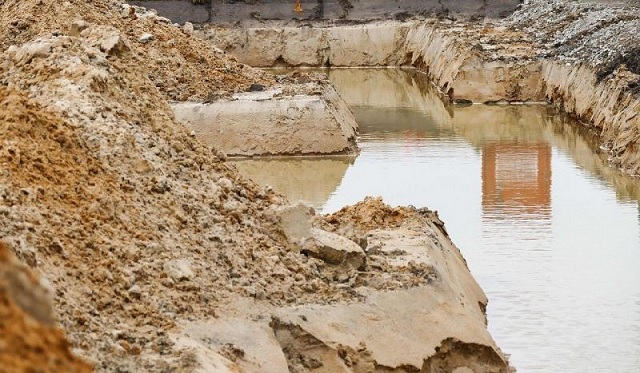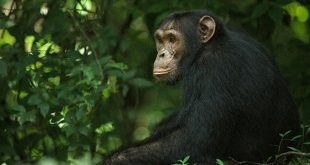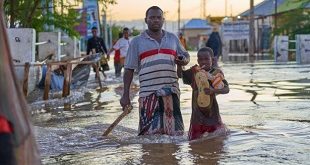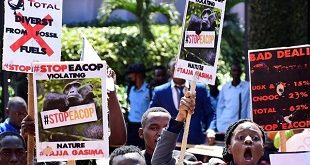
Kampala, Uganda | THE INDEPENDENT | Groundwater is vital to economic activity and growth, food security, socioeconomic development, and adaptation to the impacts of climate change. But a new World Bank report says the sustainability of this critical resource is at risk in many regions, partly because it is not valued appropriately and is taken for granted.
The report, titled The Hidden Wealth of Nations: The Economics of Groundwater in Times of Climate Change, demonstrates how groundwater can safeguard food security while boosting economic growth and job creation.
Reliance on groundwater is common in rural areas. Some urban areas are also heavily reliant on this resource. Uganda is among the countries where over 50% of the urban population depends on groundwater.
The report suggests that in the context of global pressures on food systems and water supply, policymakers need to act now to ensure groundwater is managed responsibly across sectors depending on this resource.
The report considers the economic value of groundwater, the costs of misusing it, and the opportunities to leverage it more effectively, describing it as the most important freshwater resource particularly in times of drought. As climate change advances, policymakers need to understand better and manage this critical asset, the bank advises.
However, the report finds that in most cases, this resource has been undervalued and over-exploited, with insufficient regard for its long-term sustainability.
This is partly due to a lack of systematic research into its economic importance. With this in mind, the new report offers fresh data and evidence that with the right policies in place, we can maximize the benefits of groundwater harvesting, both now and long into the future.
In 2022 alone, drought conditions in eastern Ethiopia, northern Kenya, and Somalia led the UN to warn that some 22 million people could risk starvation. In Somalia, the rainfall in the March to May season was the lowest in the past six decades. And large parts of DR Congo and Uganda have also experienced very dry conditions compared with the average.
Nature’s insurance policy
The new World Bank report describes groundwater as nature’s very own insurance mechanism. It can buffer a third of the losses to global economic growth caused by droughts while ensuring cities do not run out of water during extended dry periods.
This resource is especially important to the agricultural sector, where it can reduce up to half of the losses in productivity caused by rainfall variability.
This, in turn, translates into protection against malnutrition. In stark contrast, a lack of access to shallow groundwater increases the chances of stunting among children under five years old by up to 20 percent.
As such, humanity can use this resource to pursue collective development goals. For example, solar pumps with adequate safeguards can increase groundwater-based irrigation in Sub-Saharan Africa, thereby reducing poverty and protecting communities from climate shocks.
More broadly, as the impacts of climate change increase, groundwater could keep playing a crucial role in sustaining sensitive ecosystems that sequester carbon and in safeguarding vulnerable communities from extreme weather.
A mismanaged resource
As the depletion of the water table, degradation of groundwater quality, and growing competition for this resource threaten its sustainability, societies could become even more vulnerable to climate shocks. While some countries use groundwater insufficiently, others have become overly reliant on it.
Already, up to 92 percent of transboundary aquifers in the Middle East and South Asia are showing signs of groundwater depletion.
In South Asia, groundwater has provided an agricultural revenue advantage of between 10 percent and 20 percent, but this benefit is declining as the resource is depleted.
At the other end of the spectrum, groundwater is underutilized in Sub-Saharan Africa.
More than 255 million people in the region who live in poverty live in areas where expanding shallow groundwater is feasible. By using this resource responsibly and valuing it appropriately the region could improve its agricultural yields and advance its development.
A call for urgent political action to prioritize ground water
A central message of the report is that groundwater needs to be prioritized by policymakers to ensure it is used in a way that benefits society, the economy, and the environment. High-level political action is needed to align the private and social costs of groundwater use.
As an example, targeted policies and subsidy reforms can ensure that the expansion of green energy and agricultural investment does not lead to the over exploitation, degradation, and mismanagement of groundwater resources and their dependent ecosystems.
Groundwater-sensitive agricultural policies and subsidy reforms are needed to promote the sustainable management of this asset. In Nepal, for instance, the subsidization and expansion of solar irrigation helped farmers to extend their agricultural livelihoods into aquaculture.
*****
URN
 The Independent Uganda: You get the Truth we Pay the Price
The Independent Uganda: You get the Truth we Pay the Price


